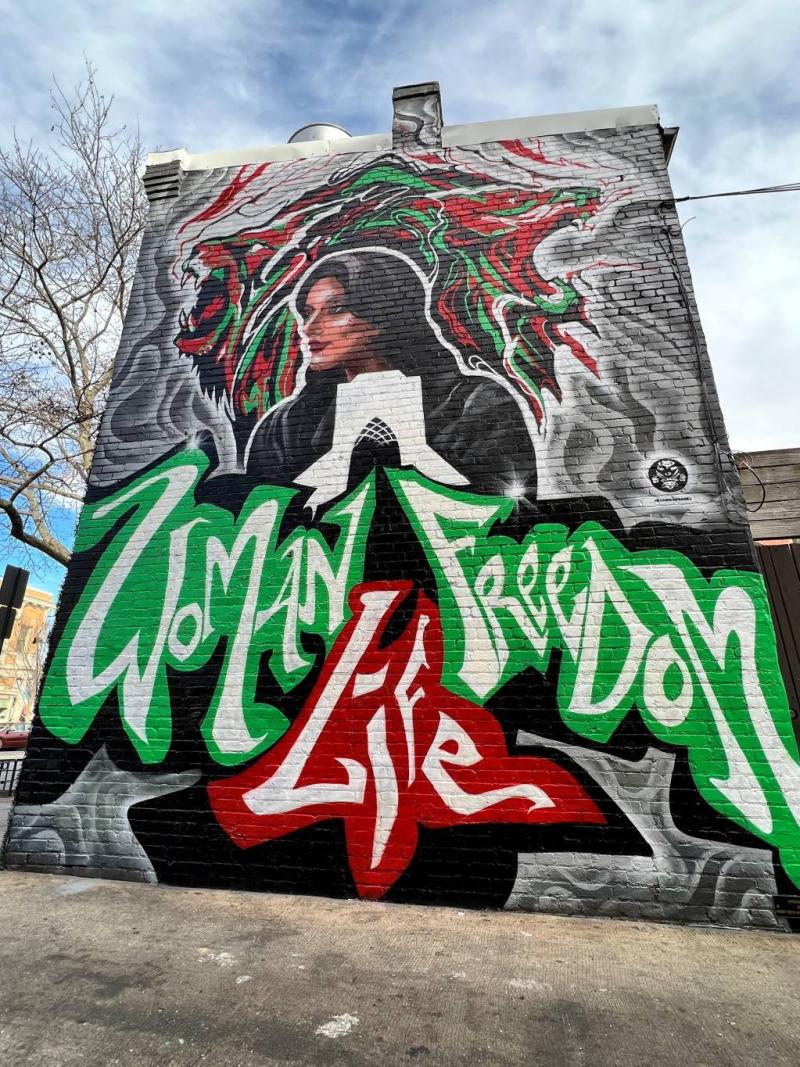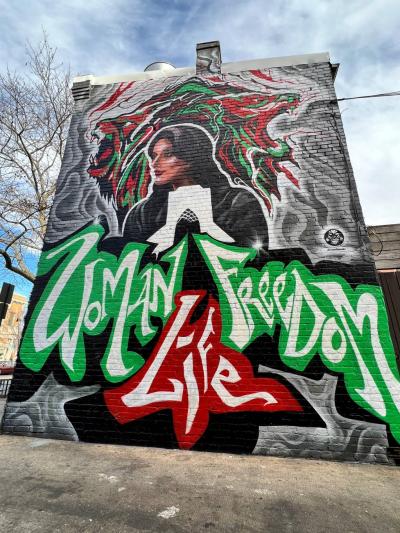On the first anniversary of Mahsa Amini's death during her detention by the morality police, Iranian security forces briefly detained her father on Saturday amid heavy security presence in areas predominantly inhabited by Kurds. Her death sparked the largest anti-government protests since the fall of the Shah's regime in 1979. Official media reported that security forces arrested several "anti-revolutionaries" and "terrorists" in various Iranian cities, adding that they thwarted plans to incite disturbances around unauthorized demonstrations.
Human rights groups stated that security forces were heavily deployed in Kurdish-majority areas anticipating unrest on the anniversary of her death. In Saqez, Amini's hometown in northwestern Iran, the semi-official Fars news agency reported that a shotgun fired by police at a man who "ignored a warning" resulted in severe injury. The injured man was in an intensive care unit after surgery, with no further details provided.
Videos circulated on social media appeared to show protests in areas including Jahardasht, a neighborhood in Karaj west of Tehran, and in Mashhad in northeastern Iran. One video showed a group of protesters in Jahardasht chanting "We are a great nation, we will reclaim Iran," while drivers honked in support. Reuters has not yet verified this footage.
As evening approached, it seemed that the heavy security presence in largely Kurdish areas deterred widespread protests, though human rights groups reported scattered clashes in various regions. The Kurdistan Human Rights Network stated that Amjad Amini was warned not to commemorate the first anniversary of his daughter's death before being released. The Islamic Republic News Agency denied his arrest but did not specify whether he had been briefly detained or received a warning.
Social media posts and reports from human rights groups earlier indicated that security forces were stationed around Amini's home in Saqez. U.S. President Joe Biden stated in a statement yesterday, "Mahsa's story did not end with her brutal death. She inspired a historic movement, Women, Life, Freedom, which has impacted Iran and people worldwide."
Social media posts quoted Amini's parents saying in a statement last week that despite government warnings, they would hold "traditional and religious ceremonies" in memory of their daughter at her grave in Saqez.
The United States, Britain, and Canada imposed additional sanctions on Iran ahead of the anniversary of Mahsa Amini's death, a young Kurdish Iranian woman who died during her detention by the "morality police," igniting months of anti-government protests met with violent crackdowns by authorities. Amini died on September 16, 2022, after being arrested for allegedly violating Iran's mandatory dress code, her death triggering months of protests which have become a significant expression of opposition to the Iranian authorities in years.
Security forces were deployed in Amini's hometown in anticipation of unrest over the next couple of days. The U.S., Britain, Canada, and the European Union have announced several sanctions packages against Iran, attributing these to the extensive crackdown often characterized by violence against protests following Amini's death.
U.S. Secretary of State Antony Blinken stated, "Mahsa's tragic and unjustifiable death while in the custody of the so-called 'morality police' sparked protests across Iran met with unspeakable violence and mass arrests, as well as repeated internet service cuts and censorship by the Iranian regime." He added, "We will continue to take appropriate actions, alongside our international partners, to hold accountable those who prevent Iranians from exercising human rights."
The U.S. Treasury Department reported it imposed sanctions on 29 individuals and entities connected to the "violent repression" of protests in Iran following Amini's death, as well as Tehran's silencing of dissenting voices and restrictions on internet access. Among those sanctioned were 18 prominent members of the Iranian Revolutionary Guard Corps and law enforcement, as well as the head of the Iranian prisons organization.
Included in the sanctions list were the spokesperson for law enforcement, Said Montazer Al-Mahdi, along with other leaders in law enforcement and the Revolutionary Guard Corps, as well as the head of the Iranian prisons organization, Gholam Ali Mohammadi. The sanctions also targeted the CEO of Duran Software Technologies, Ali Reza Abdi Najad, as well as state-controlled media organizations such as Press TV and the Tasnim and Fars news agencies.
Brian Nelson, the Treasury's Under Secretary for Terrorism and Financial Intelligence, stated, "The United States will continue to take collective action against those who prevent Iranians from exercising their human rights." National Security Advisor Jake Sullivan indicated that Washington would impose further sanctions in the coming days, stating, "We will continue to impose sanctions on Iran's behavior, whether it violates the fundamental human rights standards set out in the Universal Declaration or is related to Iran's actions supplying weapons to Russia to kill Ukrainian civilians, and we will announce more sanctions in the coming days."
The U.S. has taken several measures to prevent Iran from providing Russia with drones, reflecting its concerns over military cooperation between Tehran and Moscow, as well as Russia's use of Iranian-made drones in its conflict with Ukraine. Britain separately announced sanctions against senior Iranian decision-makers who enforce the hijab law in Iran, including the Minister of Culture and Islamic Guidance, his deputy, the Mayor of Tehran, and a spokesperson for the Iranian police.
Canada's sanctions package announced on Friday included six individuals and marked the fourteenth set of sanctions imposed on Iran since October last year. The Canadian government noted that among those sanctioned were members of the Iranian Revolutionary Guard Corps and "the Supreme Council of Cultural Revolution."




